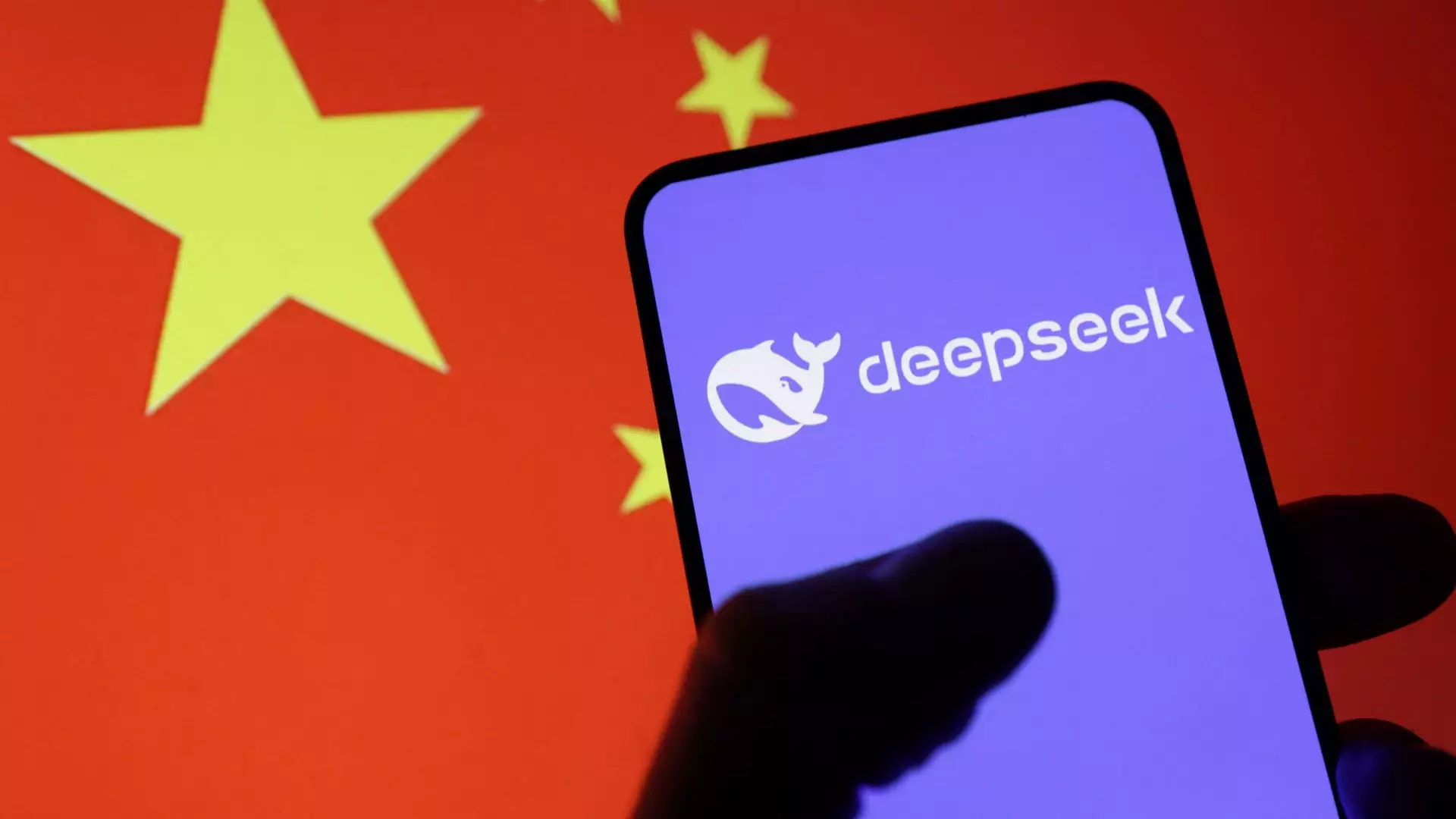In a surprise emergence that has sent ripples across the technology sector, DeepSeek, an AI startup from China, has garnered massive attention from industry giants and technology pundits alike. This new player is not merely another addition to the crowded marketplace of artificial intelligence; it represents a significant shift in the competitive landscape. Leaders like Microsoft CEO Satya Nadella, OpenAI’s Sam Altman, Apple’s Tim Cook, and Palantir’s Alex Karp have all weighed in on the implications of DeepSeek’s new R1 model, showcasing a strong sense of urgency among U.S. tech leaders to keep pace with developments emanating from China.
DeepSeek’s new model has reportedly demonstrated exceptional capabilities while also boasting significantly lower production costs, estimated at just $6 million compared to the hundreds of millions that American counterparts invest. This disparity in cost-efficiency has raised eyebrows and prompted discussions about the sustainability of the business models that underpin many established tech companies in the West. The launch of DeepSeek’s mobile application, which quickly skyrocketed to the top of Apple’s App Store, exemplifies the immediate impact that this new technology can have.
The financial repercussions of DeepSeek’s unveiling were swift and severe. Shares of major chip manufacturers like Nvidia and Broadcom plummeted by 17% in response to the news, resulting in a staggering loss of approximately $800 billion in market capitalization. This dramatic drop serves as a stark reminder of how quickly investor sentiment can shift, particularly when new technologies threaten established market dynamics. The timing of DeepSeek’s launch was particularly poignant, coinciding with a crucial earnings season for several major U.S. tech companies including Meta, Microsoft, Tesla, and Apple.
In the backdrop of these developments, U.S. President Donald Trump’s renewed focus on bolstering the country’s AI capabilities introduces another layer of complexity. His administration’s Stargate project has called for extensive investments from prominent tech entities to enhance American artificial intelligence infrastructure. With the stakes this high, discussions surrounding DeepSeek not only center on technological advancement but also on national competitiveness in the evolving global economy.
The varied responses from leading tech figures reflect the nuanced and multifaceted nature of this emerging competition. Apple’s Tim Cook, upon being questioned about the implications of DeepSeek, indicated a sense of cautious optimism, emphasizing that innovation fostering efficiency is generally beneficial. Cook’s remarks highlight an industry acknowledgment that competition can spur development, but they also hint at a desire to maintain unique competitive advantages rooted in Apple’s integrated technological ecosystem.
Meanwhile, Meta CEO Mark Zuckerberg’s remarks on the matter indicate a notable level of skepticism regarding the immediate ramifications of a single competitor’s success. By underscoring the need to assess trends comprehensively, Zuckerberg suggests that the situation requires further observation before concluding the long-term impacts. This highlights a fundamental truth in the tech industry: while competition accelerates innovation, the broader market’s focus can often shift rapidly, making it difficult to predict which players will ultimately thrive.
Palantir’s Alex Karp pointedly addressed the potential ethical dilemmas surrounding AI development, where he emphasized that while technology can yield profound improvements, its usage poses inherent risks. Karp’s beliefs resonate across the tech landscape, where there is a growing acknowledgment that the trajectory of AI development includes responsibilities that go beyond mere profitability or performance. The emphasis on an “all-country effort” underscores not only the competitive landscape but also the burgeoning need for collaborative approaches to responsible AI innovation.
OpenAI’s Sam Altman, in his remarks regarding DeepSeek, reiterated the importance of remaining vigilant and proactive in light of emerging technologies. The sentiment that this could serve as a “wake-up call” is echoed throughout the industry as leaders emphasize the necessity for U.S. companies to enhance their innovation efforts and fortify their stakes in AI.
A Future Unwritten
As we look to the future, the emergence of DeepSeek marks a pivotal moment in the global AI competition. The repercussions of their advancements will likely shape both strategic business decisions and national policies moving forward. While American tech leaders express confidence and a sense of urgency, the reality remains that the landscape is in constant flux, driven by advances that can redefine competitive advantage overnight.
The developments instigated by DeepSeek serve as both a challenge and an opportunity for American companies. As they navigate this new terrain, the focus will not only be on outpacing competitors but also on ensuring that the path toward innovation is aligned with ethical standards and responsible practices. The global race for AI supremacy is far from over, and the unfolding story will be one of adaptation, collaboration, and the relentless pursuit of technological excellence.

